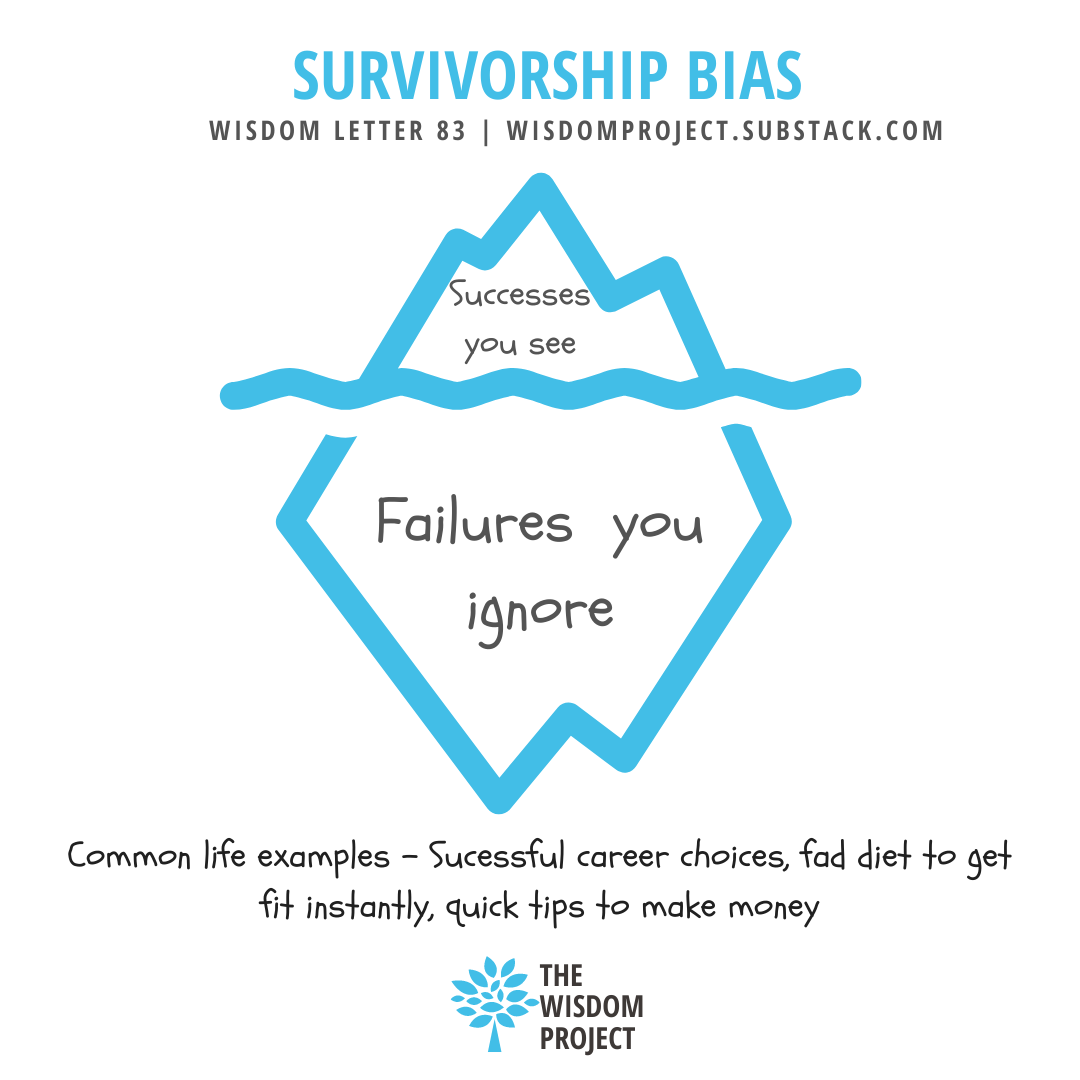Survivorship Bias: Unveiling the Hidden Truths Behind Extraordinary Success

Survivorship bias is a captivating yet often overlooked phenomenon that distorts our perception of success and achievement. It occurs when we focus solely on the triumphant stories of individuals or entities who have achieved greatness, while neglecting the countless failures and misfortunes that led to the rise of these success stories. This post aims to shed light on Survivorship bias, its implications, and how we can navigate its effects to become better informed, inspired, and empowered individuals.
Understanding Survivorship Bias
Survivorship bias thrives on the tendency to ignore the individuals who have fallen along the journey to success. We tend to celebrate the exceptional few who made it to the top while disregarding those who faced setbacks and failures. This bias can occur in various aspects of life, including business, science, sports, and personal development.
Survivorship Bias in History
Survivorship Bias in Business and Investing
In the business world, we are inundated with tales of entrepreneurial success and thriving companies. However, for every prosperous enterprise, there are numerous failed ventures that are rarely discussed. By understanding Survivorship bias in this context, entrepreneurs can learn from past mistakes and failures, making more informed decisions to improve their chances of success.
Survivorship Bias in Personal Development:
On a personal level, Survivorship bias can influence our perception of self-improvement. We tend to compare ourselves to the seemingly extraordinary achievements of others without considering their struggles or acknowledging our own progress. Embracing our failures and recognizing our unique paths can foster resilience and a healthier perspective on personal growth.
Breaking Free from Survivorship Bias:
1. Embrace Failure: Failure is an essential part of growth. Recognizing and learning from our failures helps us build resilience and discover valuable insights for future endeavors.
2. Seek Diverse Perspectives: Look beyond the headlines and success stories. Engage with diverse perspectives and narratives to gain a more holistic understanding of the challenges and experiences that shaped successful individuals.
3. Practice Critical Thinking: Question the underlying assumptions of stories and statistics. Be curious and open-minded in exploring the complete picture, not just the surface-level successes.
4. Celebrate Effort and Progress: Acknowledge the effort and progress made by individuals, even if their outcomes are not extraordinary. Small victories are stepping stones to greater achievements.
Survivorship bias profoundly influences how we perceive success and achievement, leading us to overlook the failures and struggles that paved the way for triumphs. By acknowledging the presence of bias in various aspects of life and learning from those overlooked stories, we can gain a more balanced perspective, become inspired by resilience, and empower ourselves to embrace challenges on our path to success. Only then can we truly appreciate the extraordinary in the ordinary and find motivation in the stories of those who dared to dream, even in the face of adversity.
✨✨🙏✨✨
Learn more:





